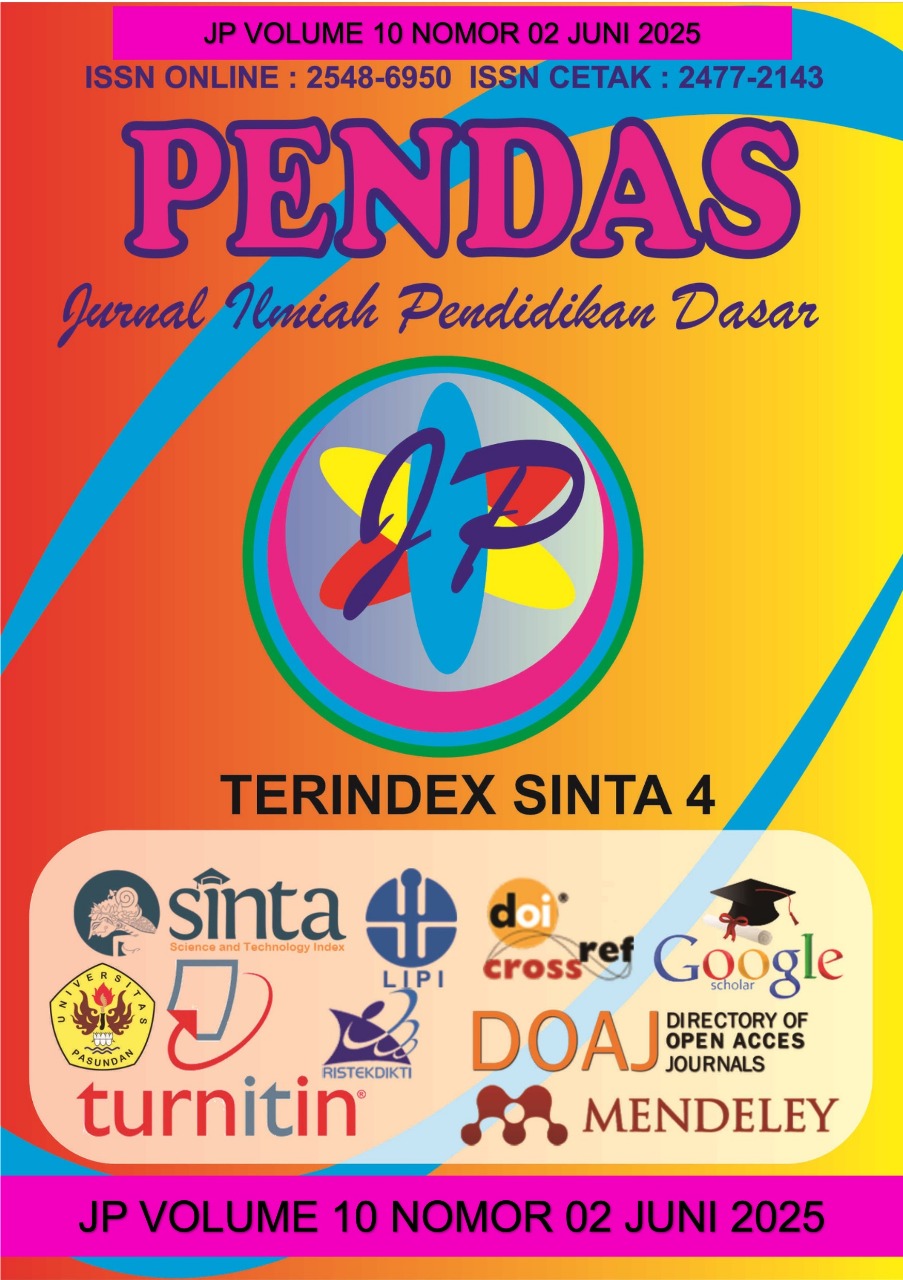PENGGUNAAN BAHASA IBU (MOTHER TONGUE) DI SEKOLAH DASAR
DOI:
https://doi.org/10.23969/jp.v10i2.26259Keywords:
mother tongue, learning, primary schoolAbstract
Mother tongue is the first language that individuals acquire naturally through interactions in the family and community environment. In the world of elementary education, this language has an important role as the main means of supporting cognitive, social, emotional development, and strengthening children's cultural values. This study aims to examine the contribution of mother tongue in improving students' understanding of subject matter, as well as its impact on language skills and interaction with Indonesian. With a literature study approach, this study examines various scientific references that discuss the role of mother tongue in elementary school environments. The results of the study indicate that the use of mother tongue in the learning process can improve students' understanding, create a more conducive learning atmosphere, and provide a strong foundation in the multilingual learning process. In addition, good mastery of the mother tongue also strengthens students' metalinguistic awareness which is very important in acquiring a second language. However, if its use is not balanced with the right strategy, the dominance of the mother tongue can lead to code mixing which has an impact on limited mastery of the Indonesian language. Therefore, strategic integration of the mother tongue in learning at the elementary school level is needed, in order to support academic achievement while preserving local cultural heritage. This study recommends the importance of educational policies that support the balanced use of mother tongues as part of a contextual and inclusive teaching approach.
Downloads
References
Aidilla, M. Paris. 2025. “Bahasa Ibu Mother Language.” 9738–51.
Dongoran, Ima Kurniati, Nur Hidayah Siregar, and Siti Chairunisa. 2024. “Analisis Pengaruh Penggunaan Bahasa Ibu Terhadap Keterampilan Berbicara Bahasa Indonesia Pada Siswa SD.” 8:22298–303.
Idawati, Febriyanti, Fatimatuzzahra. 2024. “3 1,2,3.” 09.
Julaiha, Wasis Suprapto, Rini Setyowati, Rien Anitra. 2024. “4 1,2,3.” 09(September):236–45.
Lilik Nur Indah Sari, Lilik Bintartik, Fajar Maulana Putra. 2024. “Dampak Positif Penggunaan Bahasa Ibu Dalam Pembelajaran Di Kelas 4 Sdn Lowokwaru 05 Kota Malang.” 4(5). doi: 10.17977/um065.v4.i5.2024.11.
Mutiarani, Aisyah, Ananda Setiawan, Silvi Dwi Novitasari, Della Dwike Agustin, Chika Sucita, Rahmad Fadli, and Dinni Ramalia. 2024. “PENGGUNAAN BAHASA IBU DALAM KETERAMPILAN BICARA SISWA USE OF MOTHER LANGUAGE IN STUDENTS ’ SPEAKING SKILLS.” 6825–29.
Permana Aditya, Rahman, Kurniasari Leni, Wijayadikusumah Bambang. 2021. “Listening Skill ), 2).” 1(6):369–79.
Saputri, Novita Zulfa. 2023. “Analisis Penggunaan Bahasa Ibu Dalam Pembelajaran Bahasa Indonesia Di Sekolah Dasar.” Jurnal Karya Ilmiah Pendidik Dan Praktisi SD&MI (JKIPP) 2(2):87–96. doi: 10.24260/jkipp.v2i2.1524.
Suttrisno, S., Apriono, D., &. Pratiwi. 2023. “The Impact of The Use of Mother Tongue on Student Learning in Madrasah Ibtidaiyah Tarbiyatul Islam, Soko, Tuban.” Journal of Elementary Educational Research 3(2):67–80.
Downloads
Published
Issue
Section
License
Copyright (c) 2025 Pendas : Jurnal Ilmiah Pendidikan Dasar

This work is licensed under a Creative Commons Attribution 4.0 International License.














































